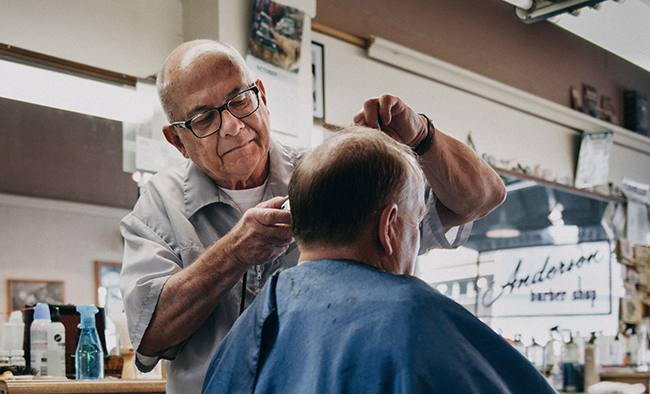I went to the farmer’s market with my wife on Saturday. We got there late, just as things were calming down and the lines were dwindling. At the first stall, we asked the guy selling apples to “choose four of the best” for us.
He lit up a bit, and was delighted to pick out his favorites, explaining why they tasted just right this time of year. Then we went to the flower stand, which still had some lovely choices left. We asked the florist “what would you choose?” And she gave us three nice fall bunches for the price of two.
When I go to get my hair cut—the guy’s name is Isaac, he works on Seventh Avenue, and he has lots of pictures of him and Anderson Cooper, because he evidently also cuts his hair—the first thing I tell him whenever I sit down is that “I trust your brilliance, Isaac.” And I always try to tip him like a Vanderbilt.
Maybe it’s a rare thing, here in America. But I’ve noticed how much people love it when you show them you’re interested in paying for their expertise. Not just their product. It’s the Socratic approach to consumption, I suppose. That the wisest customer is the one who knows they know very little. Perhaps it’s on this basis that I tend to form lasting friendships with people who work in shops. In Portland, Oregon, I became best friends with Chris, the clerk at the local video store. This was pre-Netflix and obviously I’m old. But I was genuinely interested in his DVD recommendations. He eventually bought his girlfriend round for Thanksgiving dinner.
In the world of communications consulting, many of my clients begin the conversation telling me they want me to be creative. Or that they want somebody who pushes back on bad ideas. They really mean it when they say it. And I appreciate them for it. But it’s actually quite hard to sit down in a barber’s chair and say you trust the judgment of the guy wielding the scissors. Or to believe Chris on a Friday night when he says you’ll enjoy something black and white that was made in 1927.
It takes a kind of bravery to build long-term relationships with such people, rather than purely transactional ones. To invest more of yourself in the experience can be unnerving.
BUT. WHAT ABOUT THE POTENTIAL UPSIDE?
My film knowledge is encyclopedic. Our apartment, as I write this, is full of lovely flowers. We tried four different kinds of delicious apples, this weekend. And I really like going to see Isaac.
I like that he always puts cassette tapes on while he’s cutting my hair. Sometimes it’s Mozart. Sometimes it’s David Bowie. But we have a good time in there. It’s a fun experience. He may not be Vidal Sassoon, exactly, but he’s got his own thing going on, and I’m a loyal client based on our relationship. He’s not come over for Thanksgiving, yet. But I’m working on it.
Meanwhile I’d invite you to consider what kind of customer you are in life. How much control you’re willing to cede, in order to have a genuinely satisfying and enriching experience. And whether life might be a little more joyful, not to mention successful, if you just let Isaac choose which cassette tape to put on, once in a while. Better yet, if you could say anything to encourage him to be creative? To do his best work for you and relax? To see you as more than just a paying customer?
My hair (what’s left of it) is officially amazing, now, and I’m ready for CNN. Another benefit!
It’s a two-way street, this, and a subtle art. It takes reflection and consideration, and some thought. On both sides. Yet it can really pay dividends and be joyful, in the end. The one thing I can tell you is that when you’re the barber, or the florist, or the video store clerk, in this situation, you do your best work for such people. Every single time.


